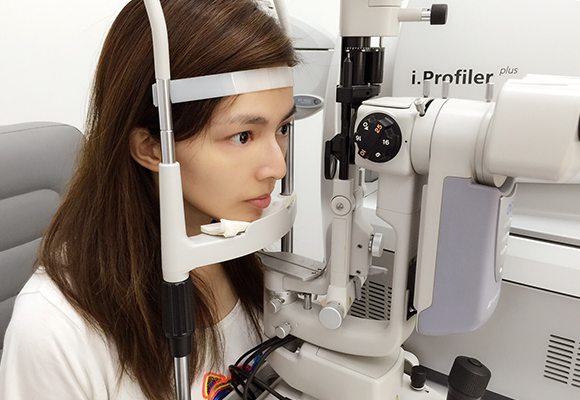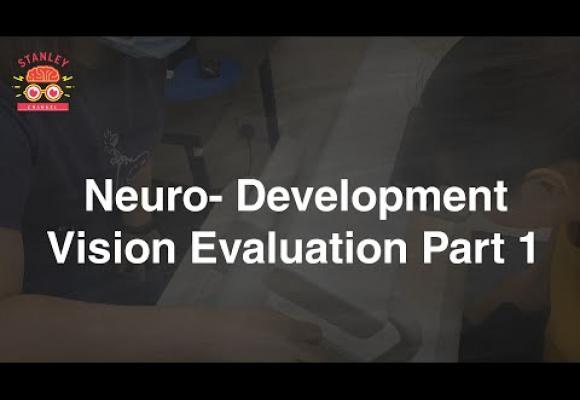Binocular Vision Dysfunction
Binocular Vision Dysfunction (BVD) occurs when two eyes are not working together as a team. One eye is misaligned between the line of sight with the other eye. When the amount of misalignment is large, double vision may happen. Whereas, when the amount of misalignment is small, a single image is maintained. Vertical heterophoria (VH) may occur due to the lack of coordination between two eyes. If this condition is left untreated, the patient may have vertical double vision.
Symptoms of BVD
Frequently Asked Questions
20/20 just means that a person can clearly see a certain letter on the standard eye chart (equivalent to what a person with normal vision should be able to see at 20 feet). There's so much more to healthy vision than 20/20!
A comprehensive vision exam is recommended for all children (6-18 years) before they start school and every year while they are in school, which cover evaluation of external and internal eye health, color vision and refraction for optical prescription, and screening visual analysis of the functional visual abilities. However, when a child struggles with reading and learning or is not achieving his or her potential, a Neuro-Developmental Vision Evaluation is needed.
In addition, if you have a younger child (toddler to 5 years) who has an eye turn (Strabismus) or lazy eye (Amblyopia) you should schedule a Neuro-Developmental Vision Evaluation. A Neuro-Developmental Vision Evaluation is also necessary for adults who struggle with reading or who have had a head injury of some kind. When children have special needs, are on the Autism Spectrum, or have other developmental delays a Neuro-Developmental Vision Evaluation is strongly recommended.
Our Neuro-Developmental Vision Evaluation goes beyond testing for 20/20 vision and evaluates all the visual skills critical to reading and learning, such as:
Eye Teaming Skills

- Do the two eyes aim, move, and work as a coordinated team? Weaknesses in binocular (two-eyed) vision and eye teaming skills can cause numerous difficulties, including convergence insufficiency and poor depth perception.
Eye Focusing Skills

- Do the eyes maintain clear vision at varying distances? Rapid, automatic eye focus adjustment is critical to learning, reading, writing, sports, etc. Deficiencies can cause visual fatigue, reduced reading comprehension, and/or avoidance of close work or other activities.
Eye Movement Skills
![]()
- Do eye movements show adequate muscle control, tracking, fixation, etc.? In the classroom, normal eye movements allow rapid and accurate shifting of the eyes along a line of print or from book to desk to board, etc. In sports, efficient eye movements contribute to eye-hand coordination, visual reaction time, and accurate tracking.
The Neuro-Developmental Vision Evaluation (NDVE) is much more in-depth than a regular eye exam. It takes approximately 1 to 2 hours and is given by our vision specialist & therapist on a one-to-one basis with the patient. The purpose of this testing is to determine how the visual system processes information, how vision integrates with the other sense modalities, and to determine whether the vision is supporting or interfering with performance to its full potential. Parents are asked to wait in the reception area during this testing. At the completion of this testing, scores will be tabulated and then presented at a consultation (scheduled at a different time) with our Behavioral and Developmental Optometrist, the patient, and/or the parents. Treatment options will be discussed.
Occasionally the evaluation may take more time to complete due to the depth of the problem. If that occurs our vision specialist will explain everything to you at that time.



